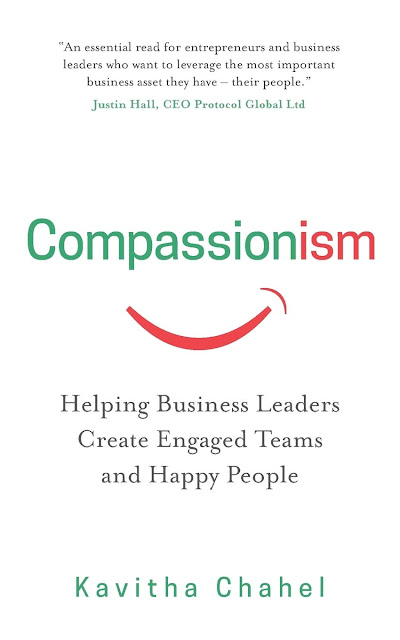BOOK REVIEW: Compassionism by Kavitha Chahel

Compassionism: Helping Business Leaders Create Engaged Teams and Happy People Whatever your role, if you lead people and want them to make a positive contribution within your organisation, this book is essential reading. Yes, the front cover is adorned with an oh-so-common platitude regarding people being the ‘greatest asset’. And, no, it is not about being a fluffy, soft, or cuddly leader. Compassionism is a candid, open, relationship-orientated book that hones in on collective communication and humanity. It is a book about people influencing people in a meaningful way. There are, nevertheless, nods to more sympathetic, lenient, and gentler qualities of leadership and management… and rightly so. To lead people, we really ought to do so in an authentic way which shows that we actually care about them and are there for them. Without these seemingly underutilised quieter qualities, leaders will continue to grapple with actually connecting to their people — the world of work needs more le...

